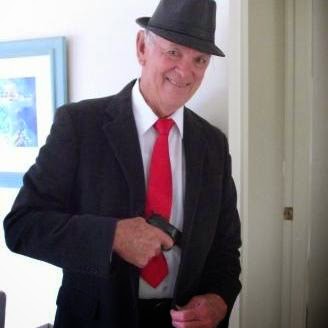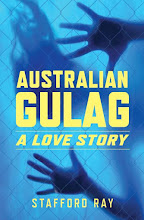At the time, I worked at Elim, the wedding reception house at Croydon in Sydney with John Speight, pianist and long time director of the Manly Jazz Festival. One night when our regular bass player was away, he booked Ron Martin. Ron was the best I had heard. His strong harmonic framework and feel made such an impression that I asked him to join the Tony Brady show group. He accepted, then recommended Loretta Lawson for piano and Laurie Watkins on drums. We had a band.

Frank Sinatra Pictures
It exceeded my expectations. It had life, it swung, we all shared a common feel and all read well. Unfortunately Tony’s show didn’t attract enough work for my band to become a permanent unit but we all kept in contact and did gigs together as often as possible. So it was that Ron and I found ourselves playing together in the late night band at Chequers Nightclub.
Ron always parked his Kombi in a vacant lot right opposite Chequers back door and often invited me in for a coffee or a drink before I faced the long drive home to Cabramatta. From the back lane, a passage led past the kitchen, ending back stage at the dressing rooms where international stars like Shirley Bassey and many more, including the outrageously gay Francis Faye put on their finery.
Ron’s Kombi was also his home and where he kept his impressive arsenal. Within easy reach were a Bowie knife, a high powered rifle with scope, a Luger pistol and a 22 Browning automatic rifle. I assure you he had no criminal intent, but as he said; ‘there’s no point owning the bloody things unless they’re there when you need them!’ It makes sense, but only if you owned them. That’s the part that doesn’t make sense to me now but seemed OK back then.
On this occasion, in the early hours after work, as we drank our way through half a flagon of claret, he produced his latest toy, just received from a gunsmith in Adelaide. Out came a beautifully crafted wooden box about eight inches long by three by three, dovetail jointed with a sliding lid, handmade by a master.
With great ceremony, he opened it to reveal, packed in tissue paper, a brand new silencer, steel blue and, he said, ready to go. I had no idea why he needed a silencer and didn’t think to ask. I was a country boy, given my first pea-rifle at thirteen, then the legal age to carry firearms. So I was more interested in the function of the thing. How it worked was not obvious. I doubted it would work and said so. Then, like a pair of naughty little boys, we slid back the side door, taking the assembled 22 with silencer and stood in the lane wondering how we could safely try it out.
I pointed out the kerbside drain that came from under the night club, so Ron stuck the barrel up and let it off. We had no idea a silencer needs space around it to work and up a drain pipe, it didn’t work at all. His faster than sound ammo didn’t help either, so the result was an almighty ka-boon that echoed through the building and off every wall for miles.
Inside the kitchen, where the drain started as a floor vent, the sound must have been deafening. After our ears recovered from the blast, we heard falling crockery, screaming Chinese ladies and terrified chefs, waiters and washer-uppers. Cacophony erupted inside and we ran.
Within five seconds we were in the Kombi and off. By the time somebody appeared at the door, Ron’s number plate was unreadable through a screen of blue and black exhaust smoke. I can still see his bearded bony face, dentures clamped in fear and determination as he pushed his little clapped out engine to maximum acceleration, staring ahead, lumbering up the lane, lights off, until we disappeared into the Sydney night, in urgent need of a laundry.







